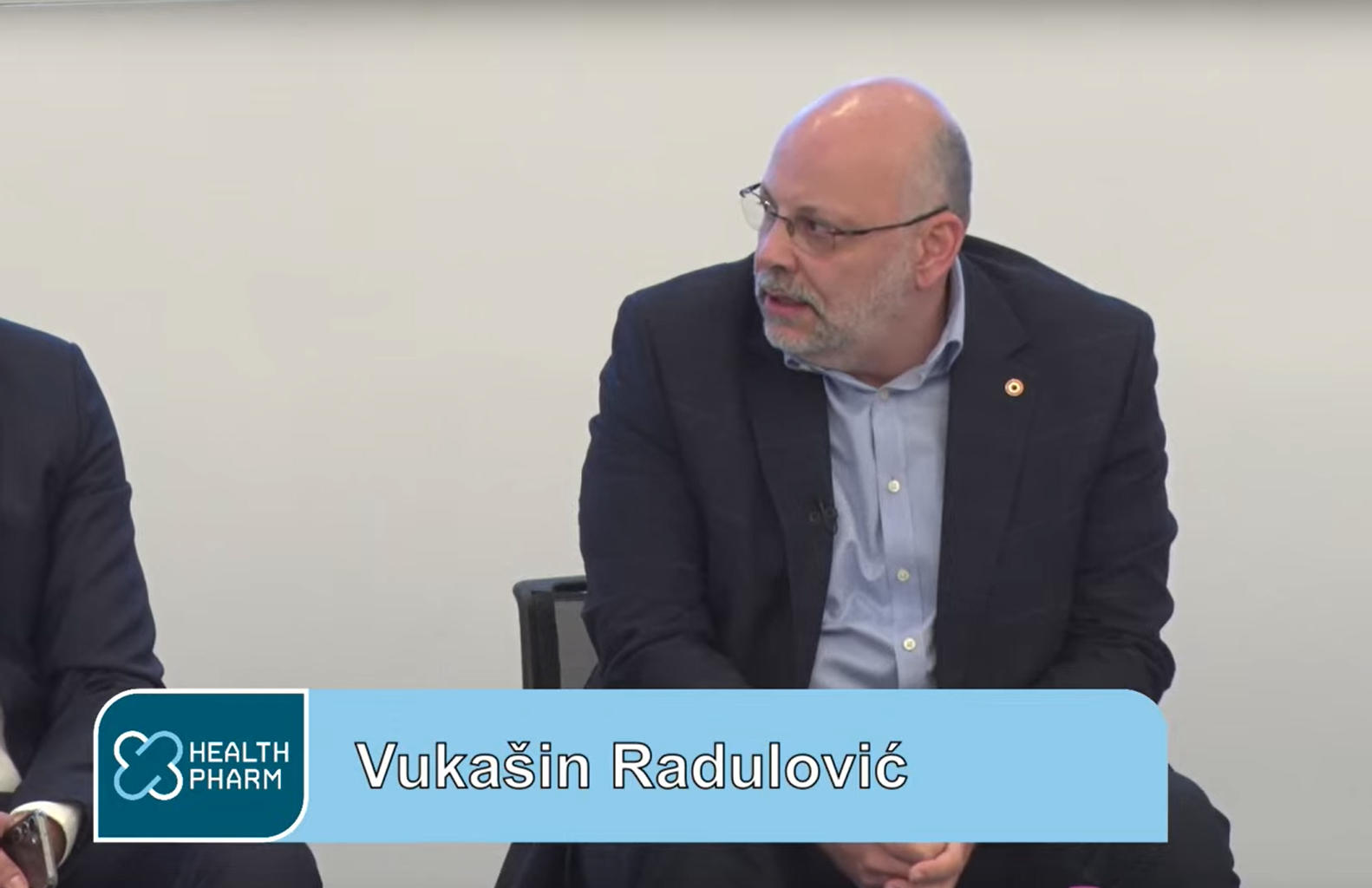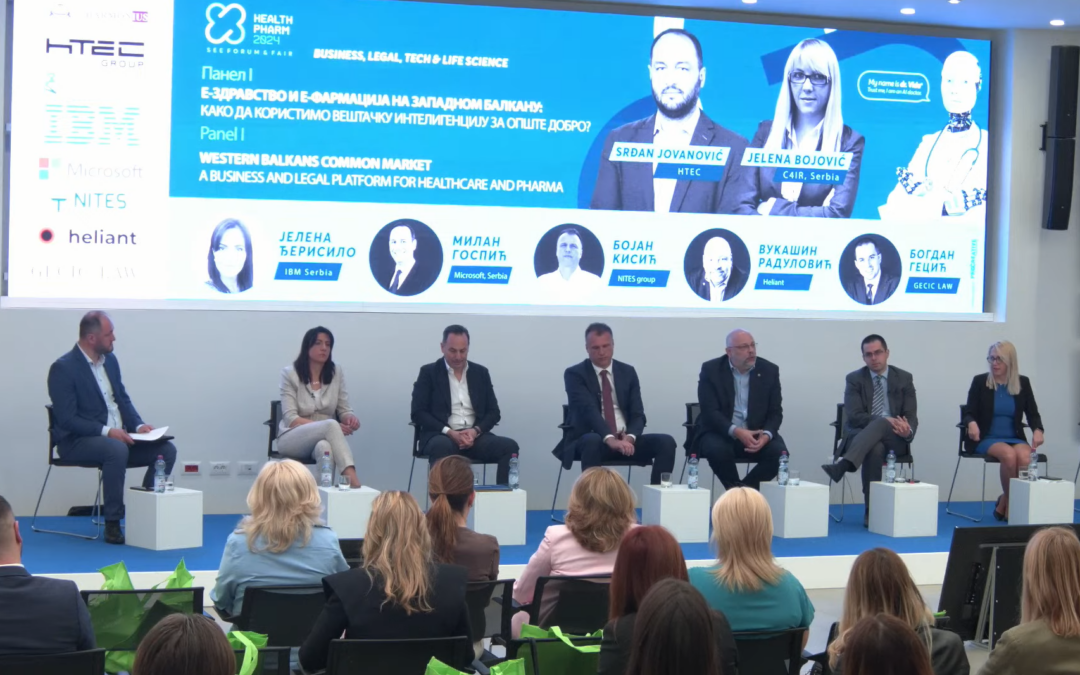Vukašin Radulović, partner in the company “Heliant”, participated in the Healthpharm 2024 SEE Forum & Fair conference today. This three-day event gathered stakeholders in the field of medicine and pharmacy in the Western Balkans, with a focus on business and legal issues.
The organizer of the event, HARMONIUS, is an independent organization, an association of scholars and researchers in the field of legal studies. They are the founders of the Belgrade Centre for Medical and Pharmaceutical Law, whose goal is the promotion and improvement of this branch of law in Southeast Europe.
Today and tomorrow, the gathering is being held at the Chamber of Commerce of Serbia, while on the third day it will move to the premises of the Faculty of Law.
The opening speeches were delivered by Slavica Milutinović, director of the Pharmaceutical Chamber of Serbia, Nenad Vujić, director of the Judicial Academy, Smilja Obradović, director of the Directorate for Legal Affairs of the Serbian Chamber of Commerce, MD Bojan Trkulja, director of the Association of Manufacturers of Innovative Medicines “Inovia” and MD/PhD Nenad Tešić, chairman of the association HARMONIUS.
Today’s panel entitled “E-health and e-pharmacy in the Western Balkans: How to use artificial intelligence for the common good?” was opened by Jelena Bojović, director of the Centre for the Fourth Industrial Revolution in Serbia. The moderator of the panel was Srđan Jovanović, vice chairman for human resources at HTEC Group and technical director of Humeds. The panellists included Vukašin Radulović, chairman of Healthcare Alliance – NALED and cofounder of the companies “Infolab” and “Heliant”, Jelena Đerisilo, regional sales manager for Cloud & Cognitive software “IBM” in Serbia, Milan Gospić, general manager of “Microsoft” in Serbia , Bojan Kisić, advisor to the board of directors at “Nites Group”, and Bogdan Gecić, founder and partner in the law office “Gecić Law”.

Radulović has pointed out that gatherings like this one, in the organization of which the Faculty of Law participated, are very important, because the harmonization of regulations in accordance with the technology potential is extremely important for society.
According to Radulović, artificial intelligence will be a game-changer in many areas, including medicine. As a big challenge for software companies like “Heliant”, which cooperate with the medical and pharmaceutical industry, Radulović has tackled the issue of how to recognize data in artificial intelligence decision-making schemes. It is important that artificial intelligence is adapted to our needs, so that large amounts of structured data from our areas are stored in global databases, on the basis of which further decisions will be made.
In response to the question of whether AI will replace humans, Vukašin Radulović states that doctors who use AI will replace those who do not. Statistics show that medical knowledge doubles every 72 days, which represents a huge amount of data that cannot be practically processed by humans without the use of AI.
Many examples of the application of artificial intelligence that we see in the world, we can also apply in our country, Radulović believes. He has pointed out that the maternity wards in hospitals in Belgrade are fully computerized, as well as the Institute of Neonatology, which exchanges data as it is done in the world, fully in accordance with legal regulations. This example shows that we have a suitable basis for the implementation of global projects in our country, where large companies play a significant role, says the representative of the company “Heliant”.
One of the examples of the use of AI in our country is the project that the company “Heliant” implemented in cooperation with C4IR and the Institute for Artificial Intelligence in Serbia. We have created models for the detection of rare diseases, which have the potential for further development. At the centre of this project is the Clinical Centre of Serbia, and it was developed specifically based on the example of Fabry’s disease. The idea is to use AI to identify patients who are more likely to be diagnosed with this disease.
There are also certain limitations regarding the application of AI, Radulović points out. To begin with, the mentality of society should be changed, and countries that are leading in this field, such as the USA, should be looked up. Another problem is the lack of capacity to store data that takes up a huge amount of space, as is the case with human genomes. Also, there are challenges in the legal domain, which will be easier to overcome if we follow the example of developed countries.
Copying the world’s AI application practices is certainly of great benefit, but we should not neglect domestic development either, concludes Vukašin Radulović, chairan of the Healthcare Alliance – NALED and cofounder of the companies “Infolab” and “Heliant”.
